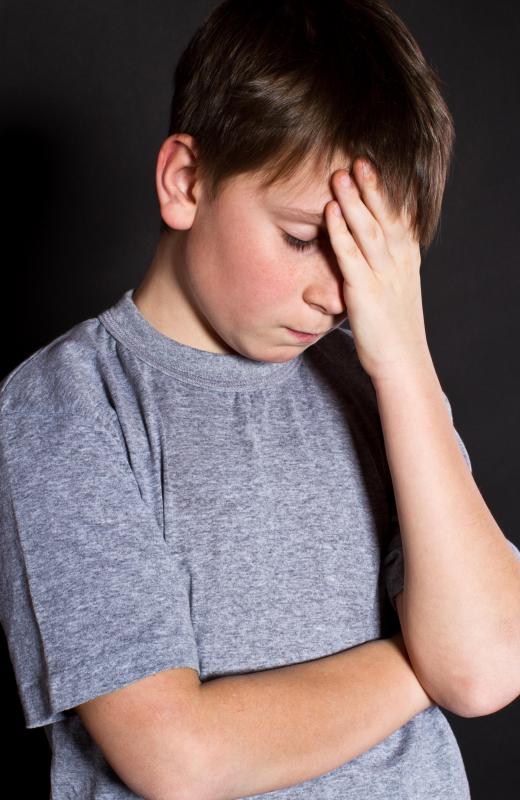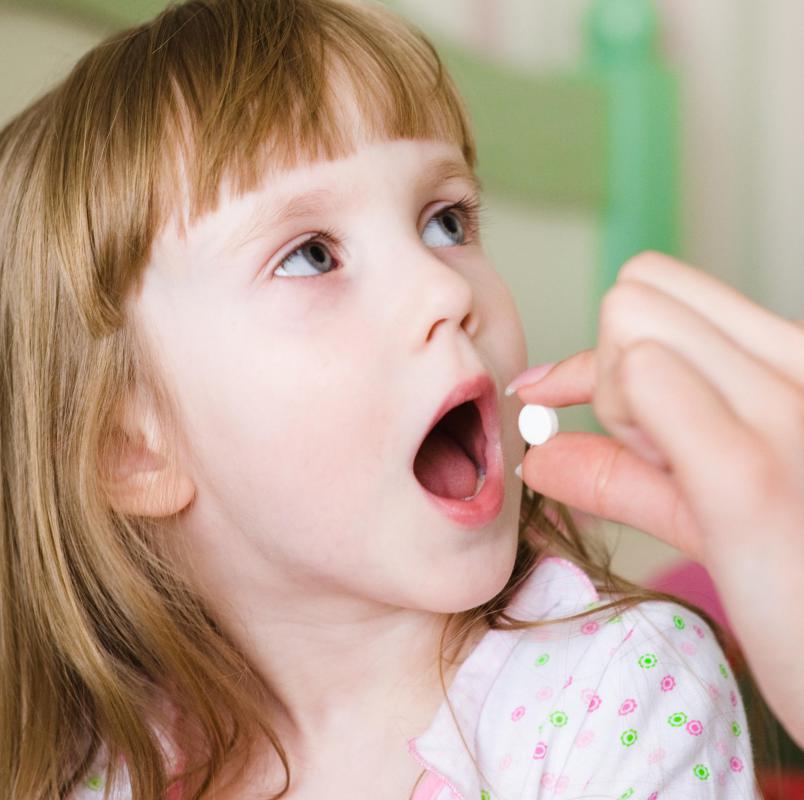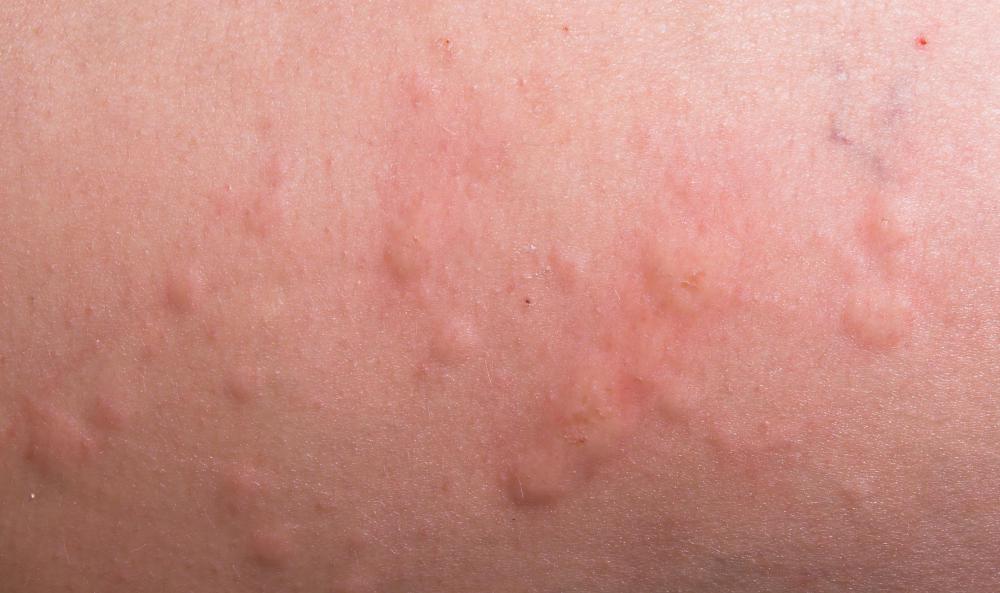At WiseGEEK, we're committed to delivering accurate, trustworthy information. Our expert-authored content is rigorously fact-checked and sourced from credible authorities. Discover how we uphold the highest standards in providing you with reliable knowledge.
Is It Safe to Use Clonidine in Children?
Clonidine is regularly prescribed to children for conditions like tics, attention deficit and hyperactivity disorder (ADHD), and sometimes for high blood pressure. In countries like the U.S., the Food and Drug Administration approve the drug for children only for its use in treating ADHD, and they have not, as yet, evaluated its safety and effectiveness for other conditions. This does not mean clonidine in children is not used for other conditions, and off-label prescriptions are common and thought appropriate by many physicians. It can have strong side effects and parental vigilance is needed when children are prescribed the medication, and therefore safety is considered by weighing risks versus benefits.
Unlike many other medications used for ADHD, this drug is not a stimulant. This makes clonidine in children all the more useful for the 10% or more of kids who may react poorly to standard treatment of the disorder with stimulant medications like methylphenidate (Ritalin®) or other drugs. It does appear effective in children and can lessen some of the difficult symptoms of ADHD, like impulsivity, restlessness, and poor focus.

Given FDA approval of safety for clonidine in children for ADHD, it also makes sense to view it as a potential treatment for other disorders in the pediatric population. It has been shown effective in treating Tourette’s syndrome and in treating high blood pressure. There are other drugs available to treat these conditions as well.
Claiming absolute safety of clonidine in children is impossible. As with any drug, there can be powerful side effects and the medication isn’t appropriate for everyone. The principal side effects that are relatively benign include feelings of drowsiness, dizziness, dry eyes, mouth and nose, and headaches.

More severe side effects can occur and require emergency medical attention. These are pain in the chest, very strong sleepiness or tiredness, tremors or shakiness anywhere in the body, and rapid heartbeat. Anaphylactic allergic reaction to the drug could also occur and this features symptoms like hives, swelling of the face, lips, and tongue, nausea, difficulty breathing, and asthma. These symptoms need immediate medical care.

For clonidine in children to be safer, it has to be administered appropriately. Exact dosage varies by weight of the child and might come in pill or patch form. Discontinuation of the drug requires care, too. The medicine should not be stopped abruptly, unless there is allergy, because it can cause strong withdrawal symptoms. Instead, it requires tapering so minimal to no unpleasant effects are experienced.

Additionally, children should have a full exam prior to receiving this drug. Clonidine can affect the heart, liver or kidneys and if children have any illness affecting these organs, another medication should be tried. Parents are also concerned about whether clonidine in children will cause long-term effects like retarded growth. There is no consensus on this, but many researchers argue that growth may actually increase slightly because part of the drug’s action is to slightly stimulate the production of growth hormone.
AS FEATURED ON:
AS FEATURED ON:

















Discussion Comments
I think clonidine works a little too well for my daughter. It knocks her out! It makes her drowsy and fall asleep. I think clonidine is okay for children if other treatments are not working. But that has to be decided by a doctor.
@ddljohn-- I don't agree with you. Clonidine might help some children with ADHD, but it's not safe or beneficial for every child. My son did not do well on clonidine. Instead of making his ADHD better, it actually made it worse. Clonidine has negative side effects too.
My daughter uses a stimulant and clonidine for ADHD. It was prescribed to counter the negative side effects of the stimulant and it works quite well. Initially, she was only on a stimulant and the medication was making her even more active even though it helped with her concentration. She also had trouble falling asleep.
The clonidine has really calmed her down and it helps her sleep. I give it to her before she goes to bed and she's asleep soon afterward.
So clonidine is definitely safe for children with ADHD in the right doses.
Post your comments